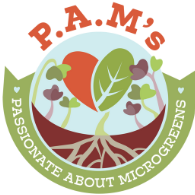The Wonders of Broccoli
Exploring the nutrients and health benefits of this green powerhouse
Introduction
Broccoli is a cruciferous vegetable prized for its dense nutritional content and numerous health benefits. Often dubbed a "superfood," broccoli is loaded with vitamins, minerals, and potent antioxidants that support overall wellbeing.
Nutritional Overview
Broccoli is low in calories and high in essential nutrients. Below is a quick overview of some of its key vitamins and minerals:
| Nutrient | Approx. Amount (per 100g) | Why It's Important |
|---|---|---|
| Vitamin C | 89.2 mg | Supports immune function and collagen production |
| Vitamin K | 101.6 µg | Essential for bone health and blood clotting |
| Folate (B9) | 63 µg | Crucial for cell division and DNA synthesis |
| Potassium | 316 mg | Regulates fluid balance and nerve function |
| Fiber | 2.6 g | Promotes digestive health and satiety |
Note: Actual values vary based on freshness and cooking methods.
Key Health Benefits
- Antioxidant Power: Helps combat oxidative stress and reduce inflammation.
- Heart Health: High fiber and antioxidants may support cardiovascular health.
- Bone Strength: Rich in calcium and vitamin K, important for bone density.
- Immune Boost: High vitamin C to support immune system function.
- Digestive Aid: Fiber enhances digestive regularity and gut health.
Unique Molecules
Broccoli contains unique phytochemicals that may offer additional health advantages:
- Sulforaphane: A powerful antioxidant believed to have anti-cancer properties.
- Glucoraphanin: A precursor to sulforaphane, found in high levels in broccoli sprouts.
- Indole-3-carbinol (I3C): May help balance hormones and support liver health.
Tips on Consumption & Recipes
- Light Cooking: Steaming broccoli lightly can help retain its nutrients.
- Pair with Healthy Fats: Adding olive oil helps absorb fat-soluble vitamins (A, D, E, K).
- Versatile Ingredient: Use broccoli in stir-fries, soups, salads, or as a roasted side.
- Broccoli Sprouts: Even higher concentration of sulforaphane.
References
- USDA Food Data Central. (n.d.). Nutrient Database.
- Harvard T.H. Chan School of Public Health. (n.d.). The Nutrition Source: Vegetables and Fruits.
- Johns Hopkins Medicine. (n.d.). Research on Sulforaphane and Cancer Prevention.






